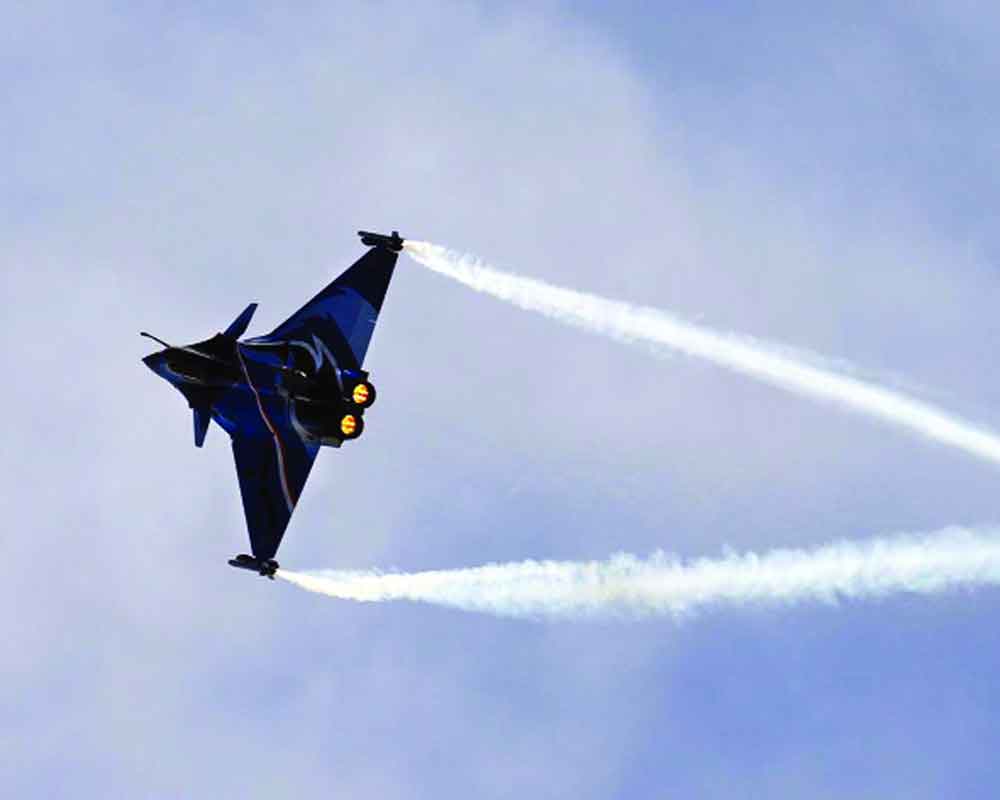The nagging question has finally been put to rest as the SC has ruled that questions about the acquisition of the 36 Rafale jets from Dassault, need to be answered. The SC reaffirmed due process while asserting the right of the media to bring facts to light. For a jet that would undoubtedly strengthen the Indian Air Force (IAF) doesn’t deserve to be bandied about as a political bogey, sometimes being used as an example of crony capitalism by the Opposition, at other times being used as a strategic achievement by the ruling party and in the worst case mimicked as floatable balloons on the current campaign trail. So the Supreme Court, which had given a clean chit to the deal in December rather summarily, has decided to examine the review petitions against it, go through due processes and uphold its own against charges that the Government was steamrolling the wrinkles in the argument favouring the contract. If indeed the top court had been mistaken or facts obfuscated from it, the judges decided they would not hesitate to go through the procedural route again. Particularly, when high-level corruption allegations were involved. Whatever the informed verdict thereafter, justice would not at least seem one-sided. Or be seen as secondary to power. Most of all, the institution of the judiciary would not seem to be compromised.
So, much to the Government’s discomfort and the Opposition’s glee, the apex court will now examine secret, leaked documents on the Rafale deal which indicate parallel negotiations outside the purview of the Defence Ministry and tweaking of provisions. Much of this information was publicised by the media and the Centre objected to their credibility and intention, saying these were classified documents “stolen” from the Defence Ministry, unauthorised and should not be admissible as evidence. By rejecting this claim, the court has also restored the sanctity of the Press at a time when freedom of speech is perceived to be under threat. So it will hear review petitions in the light of new media reports cited by petitioners alleging wrong-doing in the Rafale case. The judges also took into account petitioner Arun Shourie’s argument that since the leaked documents concerned national security, they should hear out the counter views for a fair assessment of truths. The court felt there was no point in shooting the messenger by invoking a State secrets protocol or coercing it into revealing its sources. The Press had only sought answers for clarity in the public domain. Besides, the court could not ignore co-petitioner Prashant Bhushan’s logic that “if a document is relevant in deciding a fact, how it was obtained becomes irrelevant.” Citing the US verdict on Pentagon papers leak, he had said once documents are published, the government can no longer claim privilege. In December, the top court had dismissed petitions alleging that the government had gone for an overpriced deal to help industrialist Anil Ambani’s fledgling firm get an offset contract with Dassault. But then the loopholes appeared. First, the court seemed to have been misled by the Government’s claim that the pricing of the Rafale deal had already been examined by the Comptroller and Auditor General (CAG) and the Public Accounts Committee (PAC), when, in fact, it had not. The Government tried to hide the flaw in the argument as a “typing error” and even sought a “correction.” The judges certainly did not take kindly to the idea of being fooled on technicality and language, something they are supposed to be masters of. Then media reports implied that the deal became more expensive for India because of France’s refusal to provide bank guarantees. Besides, the apex court had to maintain parity considering its own ruling that confidentiality in documents had undergone a huge change since the Right To Information Act was put in place. Whatever the outcome, the ruling has once again put Rafale back on the electoral plank as political parties continue to fan out to all corners of India through several phases of elections. But the undeniable fact is we need a decision, and a fast one, if we want to spare a thought for the severe operational deficiency in our armed forces. Whoever wins and loses the case, crows or frets about the verdict, in the end, muscular militarism is really about meeting the basic requirements of India’s most apolitical and secular institution.
Writer & Courtesy: The Pioneer








 OpinionExpress.In
OpinionExpress.In















Comments (0)